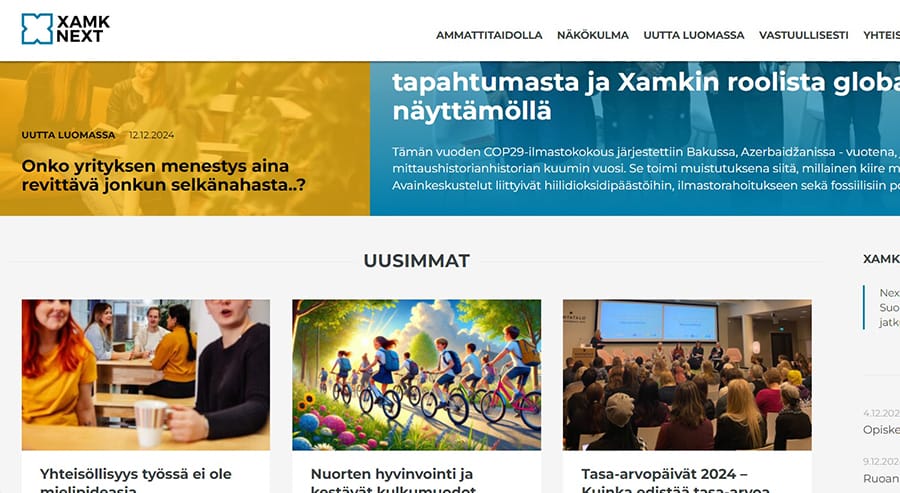Challenges and opportunities in building a professional mindset of an international student in Finland
International students’ maturing, changing their professional identities and broadening their horizons are all characterised by a greater pace than local students. It also turns out that some of the study counselling functions students have to take on themselves. It is for this reason that international students are more likely to start their own company than native students. Some negative evaluation of the process of finding an internship and first job abroad for international students may be related to the general process of adapting to a new culture and forming a new intercultural mindset.
After the so-called honeymoon period, when the foreigner finds oneself in the new environment and likes everything and evokes only positive emotions, a stage of depression and criticism ensues. It is very important for the foreign young professional not to fall into a negative wave but to show his/her proactive attitude. Thus, one should learn to nurture useful lessons by working out the kinks, rather than blaming everyone and everything and expecting any additional help from third parties in the academic environment. It should be understood that the fee-paying education model in Finland for students coming from outside the EU and ETA areas does not change the overall approach to education – treating all students equally on the basis of equal access to quality education.
Sincere curiosity and a desire to learn new things helps international students make their way to the right result and perform better.
Sincere curiosity and a desire to learn new things helps international students make their way to the right result and perform better. There should be some role models on the part of the institution among older students who, in addition to the formal professional support and counselling already available, will provide above all psychological and cultural support and motivate their younger peers by example to strive for self-development and achieve their goals in their studies, profession and life in general.
The pursuit of practical training or employment can yield a diverse range of experiences, particularly for international students. While immigrants arriving in Finland are aware of the challenges involved in finding suitable opportunities, their motivation remains high, driven by their resilience and determination to maximize their potential in any given circumstance.
Nevertheless, international students often encounter unexpected difficulties when they delve into the task more earnestly. The process may prove significantly more complicated than anticipated, presenting unforeseen obstacles stemming from either the applicants’ lack of experience or systemic issues ingrained within the employment process. Consequently, frustration, diminishing motivation, and a sense of diminished self-worth can afflict international students, potentially prompting some skilled professionals to seek employment opportunities in other countries, as Finland may seem less suitable to their career advancement.
Ultimately, when international students successfully secure employment, whether through strategic networking, unwavering dedication, or fortuitous circumstances, they retrospectively realize that they could have approached many aspects of the process with greater efficiency. Nonetheless, it is essential to acknowledge that such realizations do not relieve the employment system of its inherent shortcomings. In cases where direct solution of those shortcomings proves challenging, universities and international communities ought to strive to offer comprehensive support and avenues to circumvent these systemic challenges.




